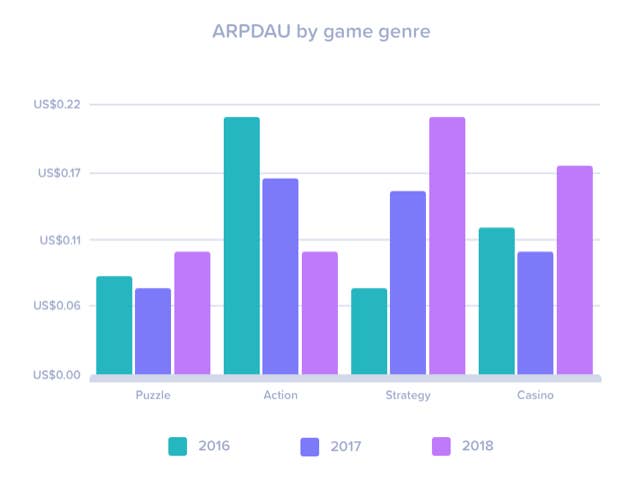DeltaDNA: Increase in casual spenders for F2P games resulting in more balanced revenue sources
Strategy and casino games lead player spending, while action game spending is down overall in spite of Fortnite
Reliance on a handful of heavy spenders to sustain F2P games may be relaxing slightly. According to analytics firm DeltaDNA, casual spending is on the rise, leading to a shift that's helping revenue sources for F2P titles become more balanced.
DeltaDNA has published a blog post summarizing finds from its latest research of over 800 million people across 2500 games from January 2016 to now. Most prominent among these is the shift over the last three years in how F2P games are bringing in revenue.
In the past, F2P games have relied heavily on a very small percentage of users who spent very large amounts ("whales") to drive revenue for games, while small-time spenders were less important. DeltaDNA relates that in recent years, casual spending is up due to a larger amount of players spending small amounts, making it a more reliable revenue stream closer to on par with whale spending.

Specifically, the average percentage of paying players in a F2P game has increased by a third in North America (to 4.02%) and a fifth in Europe (to 2.43%) over the last three years. In terms of genre, the average revenue per daily active user (ARPDAU) is way up for strategy games at $0.21 (a 199.99% increase). For casino games, that average revenue is up 41.66%, and puzzle games are up 25%. Surprisingly, action games are down 52.38% to $0.10, in spite of Fortnite's inclusion in this category.
This doesn't just include mobile games. F2P PC ARPDAU is up 260% to $0.10 for North America, and 175% to $0.44 for Europe. PC is actually a major driver of the increase in casual spending, as the report also notes that lifetime player value is down 6.58% on iOS, and average player spending on Android is down 17.69%.
"The results of the study are fascinating as they highlight a major shift in how F2P games monetize," said DeltaDNA CEO Mark Robinson. "They reveal a trend towards a more balanced monetization model, which is lot healthier for developers as it moves away from having to rely on a small number of whales to deliver the bulk of the revenue.
"As spending in F2P games slowly becomes less stigmatized and more developers offer great premium experiences rather than relying on blockers, pinch points and free-to-start type models, I believe this trend will only continue."
